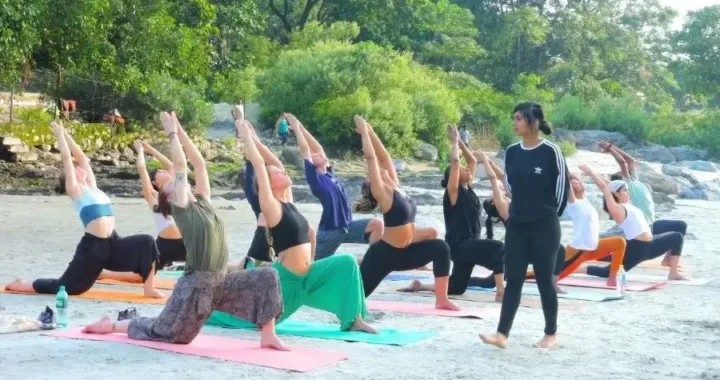Choosing the Right Hunting Gear Based on Your Needs and Budget

Hunting Gear
Hunting is a time-honored outdoor activity that requires skill, preparation, and the right gear. Whether you’re a seasoned hunter or a novice looking to embark on your first hunting expedition, selecting the appropriate hunting gear is crucial for your success and safety. However, with the vast array of options available on the market, it can be overwhelming to choose the right equipment that suits both your needs and budget. In this article, we’ll guide you through the process of selecting the right hunting gear while keeping your requirements and financial constraints in mind.
Assessing Your Needs
Before you dive into the world of hunting gear, it’s important to assess your needs based on the type of hunting you’ll be engaging in. Different hunting environments, seasons, and games require specific equipment. Here are some key factors to consider:
1. Type of Game
The type of game you’re hunting greatly influences your gear choices. For example, hunting big game like deer or elk might require a different set of gear compared to hunting small game like rabbits or birds. Consider the size of the game, their habitat, and their behaviors to determine the necessary equipment.
2. Terrain and Environment
Are you hunting in the mountains, forests, wetlands, or open plains? The terrain and environment dictate the kind of clothing, footwear, and accessories you’ll need. Waterproof and insulated gear might be essential for wet or cold conditions, while lightweight and breathable clothing is preferable for warmer climates.
3. Season
Different seasons require different gear. Cold-weather hunting demands thermal clothing and proper layering, while hot-weather hunting necessitates lightweight and moisture-wicking attire.
4. Distance and Method
Consider whether you’ll be hunting at close range or long distance. This will determine the type of firearms or bows you need, as well as additional accessories like scopes or binoculars.
5. Duration
Will your hunting trip be a day trip or an extended expedition? The length of your trip influences factors such as food, shelter, and camping gear.
Creating a Budget
Once you’ve identified your needs, it’s time to set a budget. Hunting gear can range from affordable to premium, so it’s important to allocate your funds wisely. Here’s how to create a realistic budget:
1. Prioritize Essentials
Identify the essential items that are absolutely necessary for your hunt. These might include your weapon of choice, ammunition, appropriate clothing, and safety gear. Allocate a significant portion of your budget to these essentials.
2. Research Price Ranges
Research the price ranges for the gear you need. Compare prices from different brands and retailers to get an idea of the average cost for each item. This will help you avoid overpaying and find the best deals. Now you can buy 20 gauge ammo and other latest firearms from Palmetto State Armory at the best prices.
3. Quality Matters
While it’s tempting to opt for the cheapest option, remember that quality matters, especially for gear that directly impacts your safety and success. Investing in durable and reliable gear might cost more initially but can save you money in the long run by avoiding frequent replacements.
4. Consider Long-Term Investments
Certain gear, such as firearms, optics, and backpacks, are long-term investments. If possible, allocate a larger portion of your budget to these items, as they will likely serve you for many hunting seasons to come.
Making Informed Choices
With your needs and budget in mind, it’s time to make informed decisions when selecting your hunting gear:
1. Read Reviews
User reviews and expert opinions are valuable resources for assessing the performance and durability of hunting gear. Look for unbiased reviews from trusted sources to understand how well a particular product performs in real-world hunting situations.
2. Try Before You Buy
If possible, try out gear before making a purchase. Visit outdoor stores to physically handle equipment, try on clothing, and test accessories. This hands-on experience can help you gauge comfort, fit, and functionality.
3. Consider Used Gear
Quality hunting gear can often be found second-hand at a fraction of the cost. Check online marketplaces, hunting forums, and local stores for pre-owned equipment that’s still in good condition.
4. Take Advantage of Sales and Discounts
Keep an eye out for seasonal sales, discounts, and clearance events. Hunting gear retailers frequently offer promotions, especially during the off-season. This is a great opportunity to snag high-quality gear at reduced prices.
Conclusion
Choosing the right hunting gear involves a thoughtful balance between your hunting needs and your budget. By assessing your requirements based on game, environment, season, and method, you can narrow down the essential gear you need. Creating a budget, researching prices, prioritizing quality, and making informed choices will help you assemble a gear collection that enhances your hunting experience while remaining within your financial means. Remember, the right hunting gear isn’t just about cost—it’s about finding the equipment that aligns with your skills, preferences, and the type of hunting adventure you’re embarking on.

 Winter Edit: Chic Suits for Women and How to Layer Them
Winter Edit: Chic Suits for Women and How to Layer Them  How To Find The Best Men’s Running Shoes For Every Activity
How To Find The Best Men’s Running Shoes For Every Activity  Breath of Comfort: Navigating the Humidifier Scene in Hamilton
Breath of Comfort: Navigating the Humidifier Scene in Hamilton  Optical Cambridge: A Convergence of Heritage and Modernity in Vision Care
Optical Cambridge: A Convergence of Heritage and Modernity in Vision Care  AC Repair in Hamilton: Keeping Your Cool in the Hottest Months
AC Repair in Hamilton: Keeping Your Cool in the Hottest Months  Landscaping in Milton: Cultivating Green Dreams in Ontario’s Blooming Hub
Landscaping in Milton: Cultivating Green Dreams in Ontario’s Blooming Hub  Mimamsa Yogshala Reviews | Student Experiences & Honest Feedback
Mimamsa Yogshala Reviews | Student Experiences & Honest Feedback  Big Mumbai Game Entry Amount Psychology: Why Small Bets Feel Safe
Big Mumbai Game Entry Amount Psychology: Why Small Bets Feel Safe